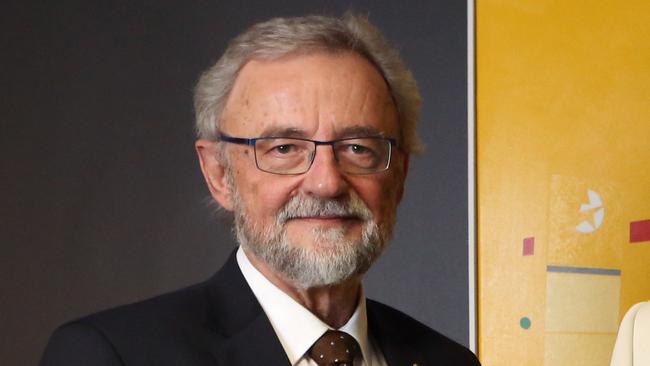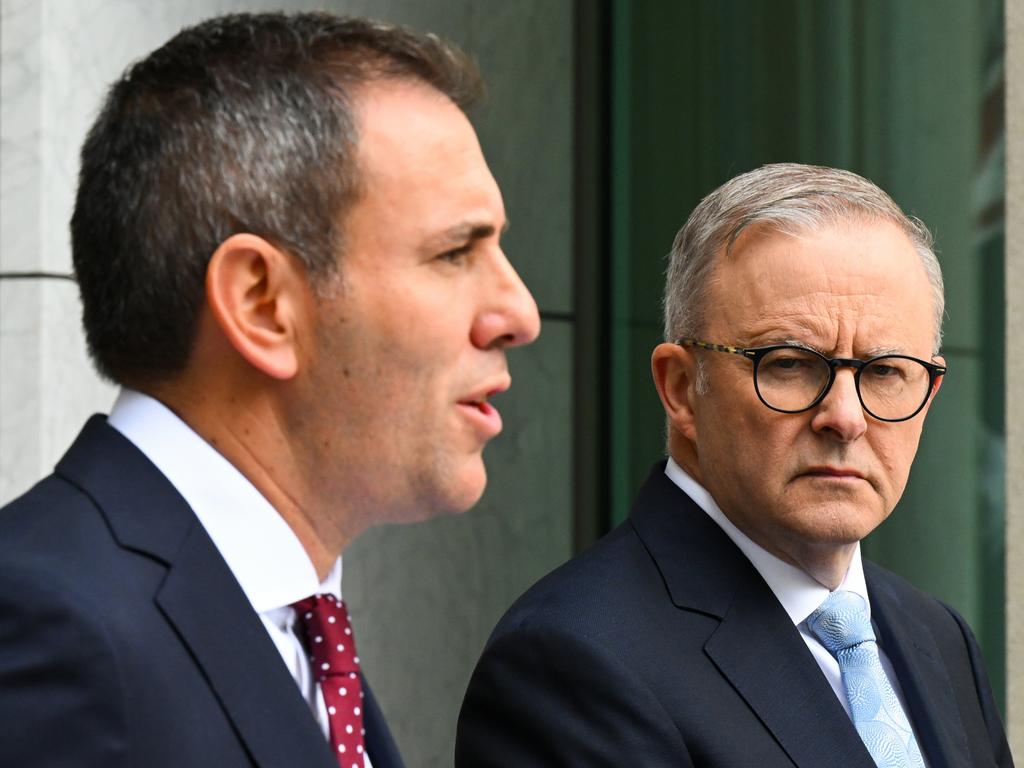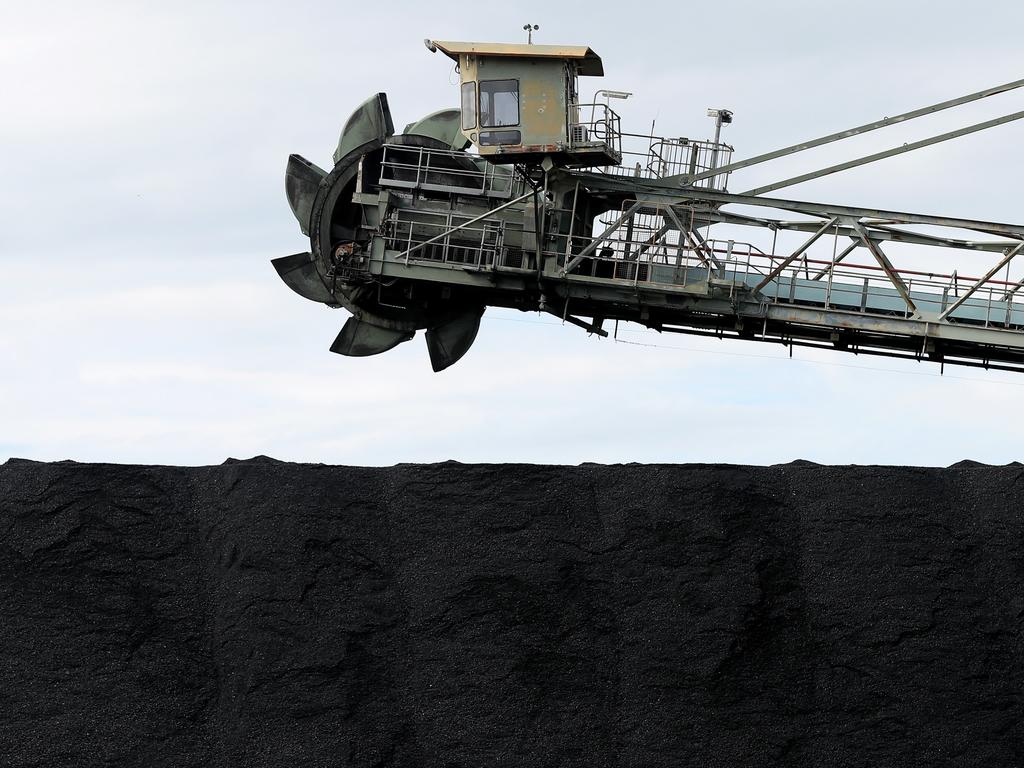Australia stuck in reverse on energy, IR and tax: Productivity Commission chair Gary Banks
Australia is going backwards on energy, IR, taxation and spending, with the public losing confidence in democracy, Productivity Commission chair Gary Banks says.

Inaugural Productivity Commission chair Gary Banks says Australia is going backwards on energy, industrial relations, taxation and government spending, with the public losing confidence in democracy and the nation facing new sovereign risk problems.
Professor Banks, the chair of the Productivity Commission between 1998 and 2013, said the nation was losing the ability to implement policies to properly “cope with change, to be competitive and support economic growth”.
In an interview with The Australian ahead of the release of a review into Australia’s productivity performance, Professor Banks said the nation had written off its comparative advantage in energy, failed to pursue lowest cost emissions cuts and electricity was becoming an unreliable luxury.
His intervention coincided with a pre-budget submission from BHP saying the government’s industrial relations agenda would harm productivity and any move to increase taxes in the resources sector would lead to “reduced investment, fewer jobs and ... lower living standards for Australians”.
Professor Banks said “the monumental bungling of the so-called energy transition” had seen multiple governments contrive to “maximise the cost to the nation of reducing emissions” while evidence-based policy had been abandoned in favour of “simple-minded belief”.
“We are in a situation where it’s become impossible to openly discuss the best way forward,” he said.
“Any attempt to use evidence or logic immediately brands you as a ‘denier’. In the Ukraine, power stations are destroyed by Russian missiles. In Australia, we blow them up ourselves.
“And we do this without having a way to replace the critical 24/7 service they provide ... As if that’s not bad enough, our governments are making it hard for gas to step into the breech – and is dismissing nuclear out of hand. Talk about daft.”
Professor Banks said decisions being taken by Labor were exacerbating the energy crisis, with a “U-turn” on workplace regulations saddling the nation with higher labour costs on top of the inflation of power bills caused by the “subsidised displacement of fossil fuels”.
“Historically, this country’s low-energy costs partly offset the high self-imposed burdens of our rigid labour market. That’s no longer the case. In fact we’ve brought about the opposite situation,” he said. “On the one hand, we have been busily eliminating our comparative advantage in energy, while on the other we are reviving our traditional disadvantage with respect to labour.”
Ahead of the release by Jim Chalmers of the Productivity Commission’s 1000-page, five-yearly review expected later this month, Professor Banks launched a withering assessment of the expansion in government, likened the NDIS to a “fiscal sinkhole” and lamented increased spending in education and health despite declining student attainment and a deterioration in key health performance indicators.
“The government position seems to be that most public spending is untouchable, even at the political cost of breaking its election promises on taxation,” he said. “While many private sector firms are under the pump, the public sector is flourishing. Employee numbers and salaries went up spectacularly during Covid.
“It would be great to mark this as a plus for the economy but government services tend to have low measured productivity and many involve waste – either through poor design or rorting. This has not improved with extra funding.
“While education spending has gone up a lot, student attainment has gone down, at least by OECD standards. Health spending has continued its upward trajectory, but indicators of performance continue to languish. Then there’s the fiscal sinkhole called the NDIS, a painful lesson about the unintended consequences of policy on the run.”
Professor Banks also took aim at a tax system geared more towards redistribution than growth, the return of subsidies for favoured industries that had been “greatly ramped up under the current government” and infrastructure policy being used for “short-term politics rather than long-term economic benefit”.
The combination of policy failures had seen Australia enter a “new phase in our democracy in which electorates can no longer trust what a political party says it will do or not do in office”.
“This erodes public trust in government and in democracy itself, as recent survey results illustrate. Moreover, when companies lose confidence in the rules, their propensity to invest, particularly in long-lived projects, is obviously impaired,” he said.
“I never thought the sovereign risk issues prevalent in certain Third World or socialist countries would one day afflict my own.”
The Treasurer used an essay in The Monthly earlier this year to flag an overhaul of the Productivity Commission to “renew and revitalise” the economic body and ensure it focused on “prosperity and progress more broadly”.
In February, he also flagged the release of the Productivity Commission’s five-yearly review by the end of March, revealing it contained nine volumes and more than 70 recommendations.
“The government won’t pick up and run with every single recommendation from the Productivity Commission, but I think there will be areas of common ground,” Dr Chalmers said.
“I think there will be opportunities to align our economic plan with some of the directions put forward by the PC.”
Professor Banks urged Dr Chalmers to lead a national debate on the findings as “(Paul) Keating and (Peter) Costello did so effectively in the past” but was sceptical of the chances of major reform. He suspected only a few recommendations would be embraced.
The two policy areas of which Professor Banks was most critical were energy and industrial relations, with government legislation expanding access to multi- employer bargaining being singled out as a major mistake.
“Now we have another flurry of IR legislation designed to further boost union power, under the pretext of ‘getting wages moving’ and ‘job security’. Most of these so-called reforms will only succeed in further undermining the market ‘dynamism’ that Treasury sees as paramount to raising productivity growth,” he said.
“In the fashion of the times, the legislation that got rushed through parliament was called ‘secure jobs, higher wages’. I thought at the time that a more accurate title would have been ‘secure unions, fewer jobs’ And this has further to run.”
Professor Banks said the “truth that is no longer spoken out loud” was that Work Choices “actually made economic sense” but that its overturning by Kevin Rudd had resulted in every Coalition leader since John Howard being “gun-shy” about IR reform.
On climate and energy policy, Professor Banks said the 1990s Industry Commission had determined that “as a tiny contributor to a global phenomenon, Australia should only act in concert with other countries”.
“Without action by the big emitters like China and America, nothing could be gained,” he said. “Secondly, in order to minimise damage to the economy, we should make use of market-based instruments like taxes and tradable permits. That’s because in principle these enable emissions to be reduced where the costs of doing it are lowest.
“These and other findings went over pretty well with both sides of politics at the time, as I recall. So the policy outlook seemed hopeful ... How did we get to a situation in which electricity will not only become a luxury but an unreliable one?”
His comments come amid a political contest over the passage of the government’s safeguards mechanism aimed at slashing the emissions of big emitters by nearly 5 per cent a year out to 2030.








To join the conversation, please log in. Don't have an account? Register
Join the conversation, you are commenting as Logout